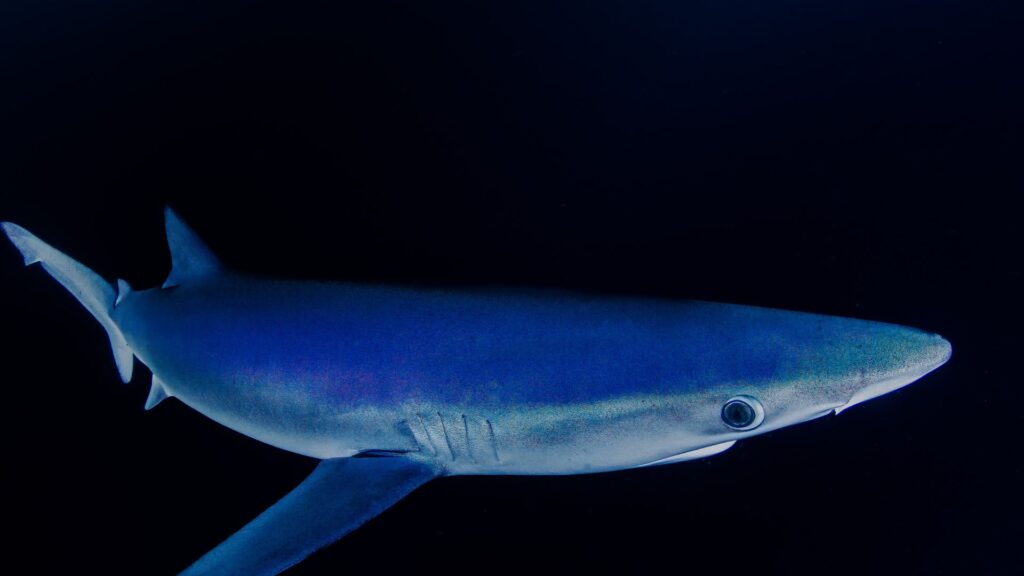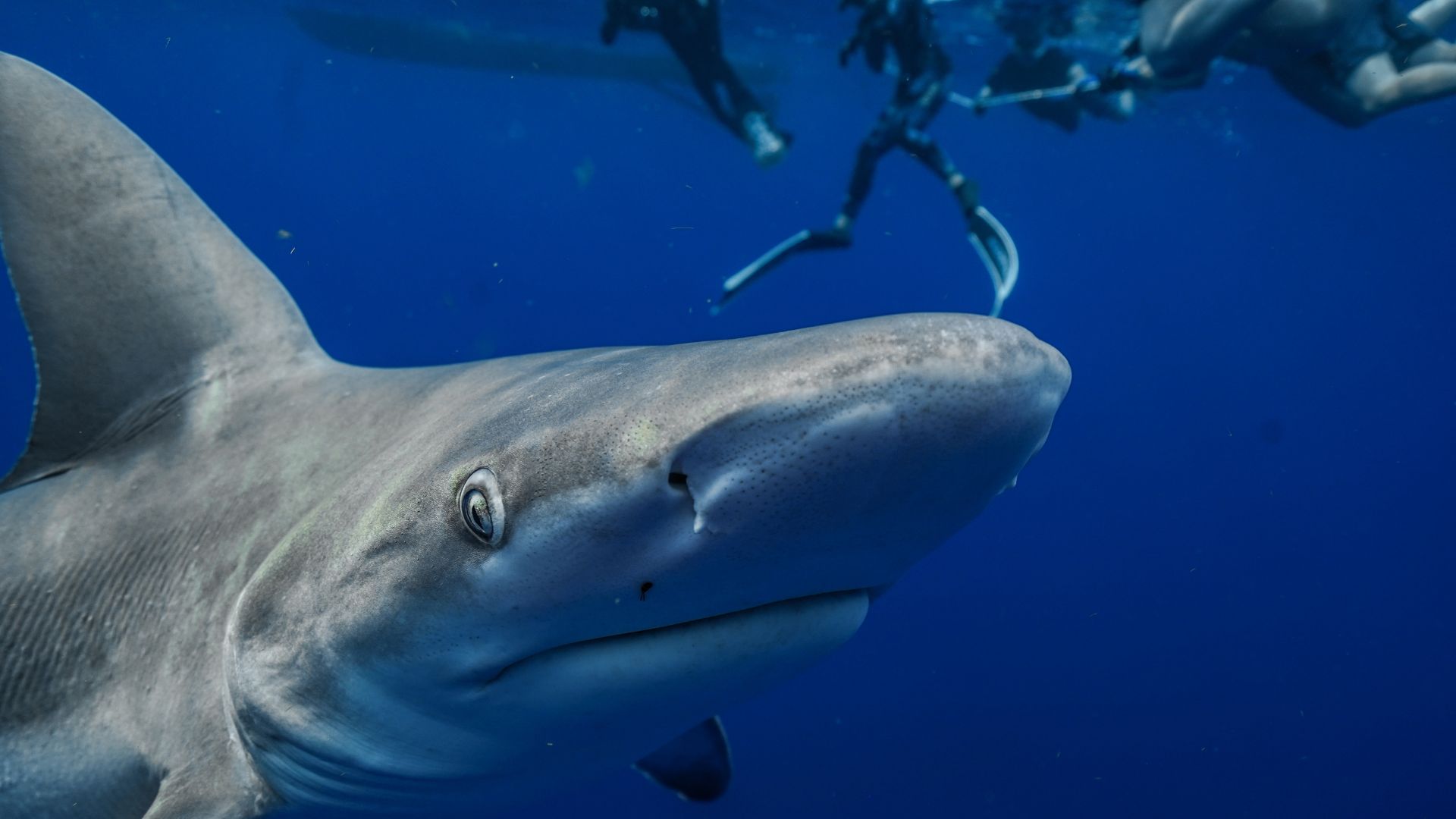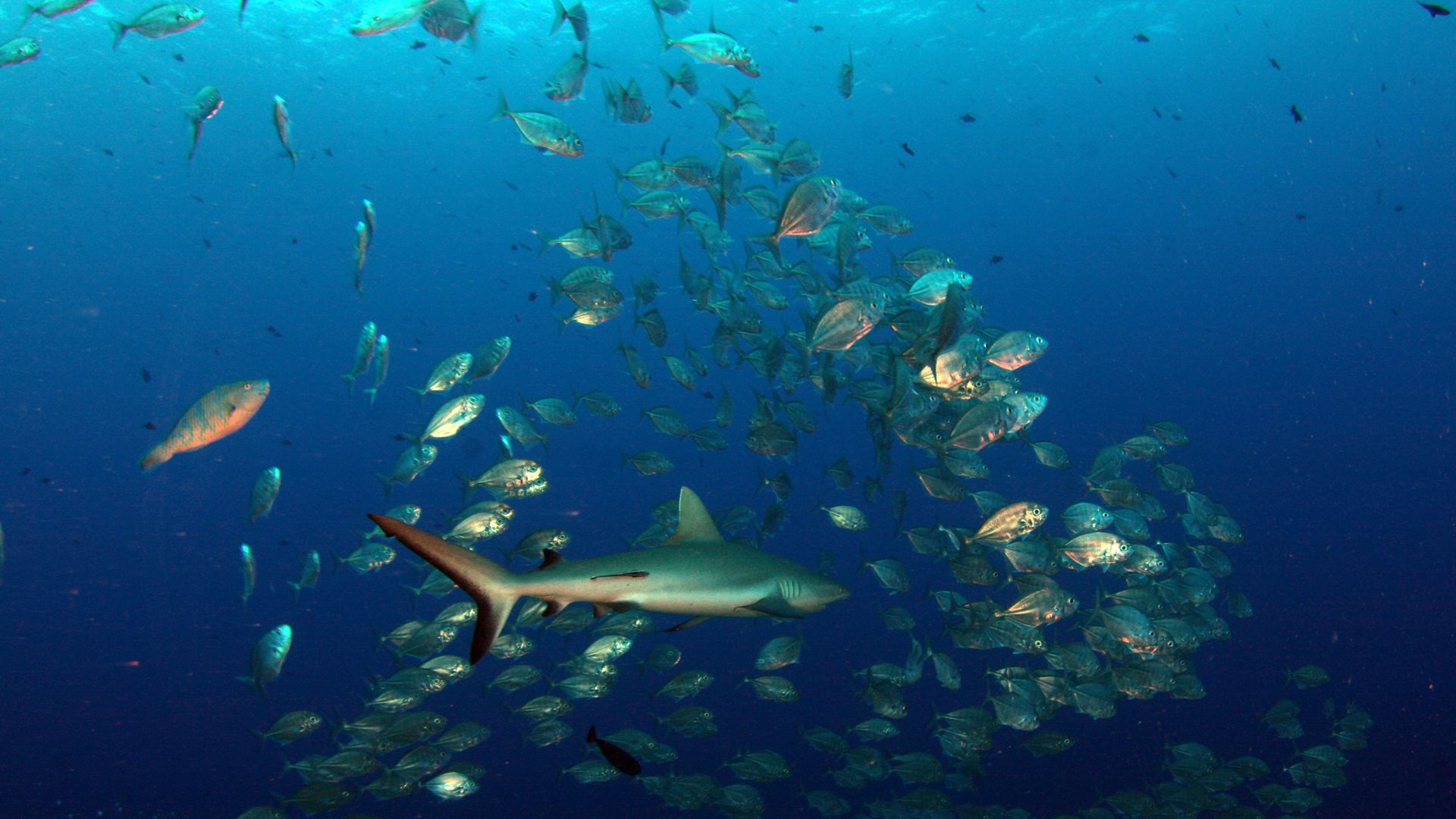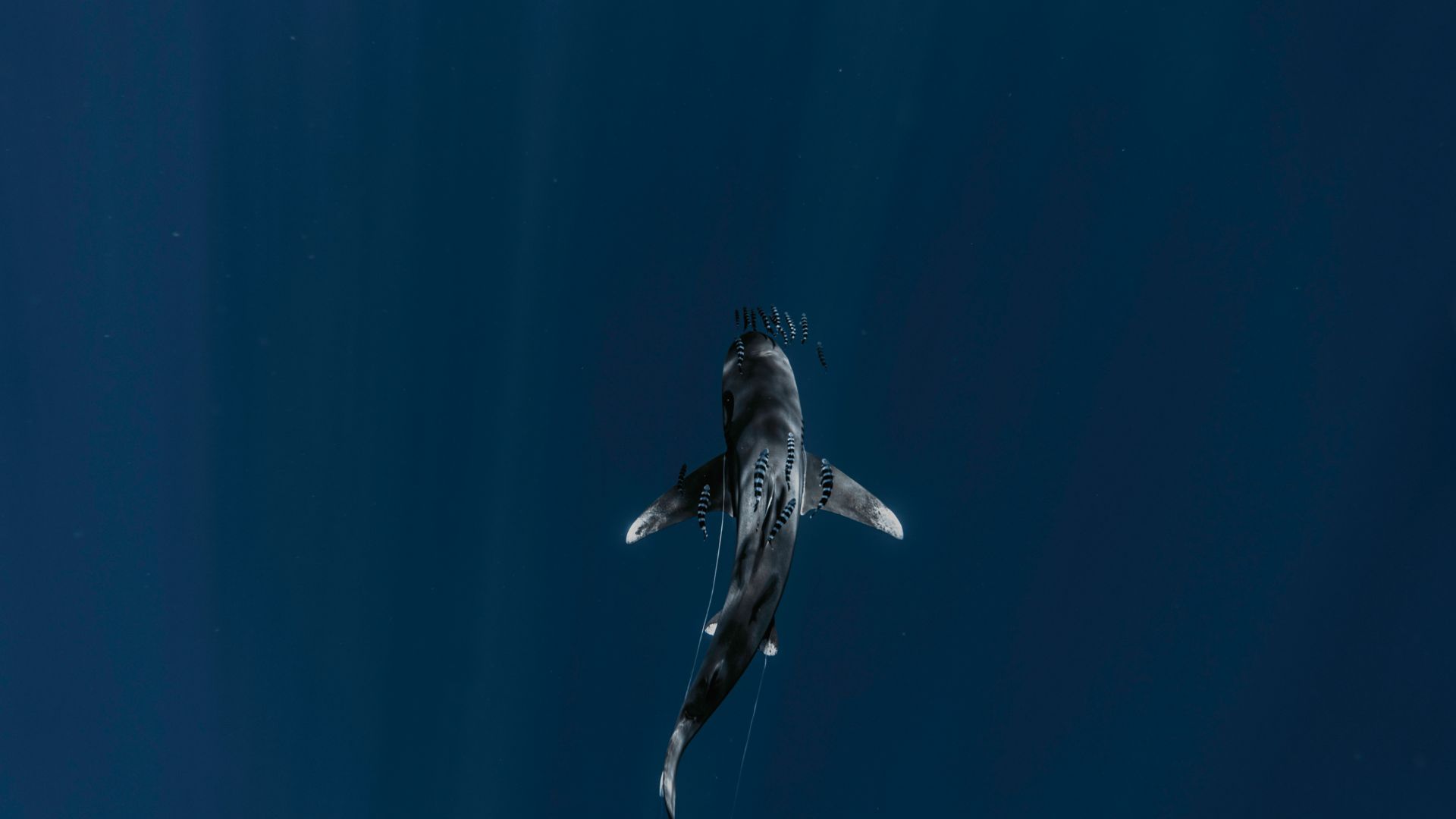
The role of sharks in marine ecosystems
Sharks often conjure images of fearsome predators, lurking in the depths of the ocean, waiting for their next meal. However, their reputation as dangerous hunters doesn’t tell the full story. As apex predators, sharks are vital to the health and balance of marine ecosystems. Their presence in the ocean helps regulate species populations, maintain biodiversity, and ensure that the marine food web remains in harmony. Without sharks, the ocean’s delicate balance would be disrupted, affecting everything from tiny fish to the largest marine mammals.
In this article, we’ll explore the critical role sharks play in marine ecosystems and why their conservation is essential for maintaining the health of our oceans:
- Sharks as apex predators
- Sharks and biodiversity
- Sharks’ impact on marine food webs
- Playing a critical role: Sharks in marine ecosystems
Sharks as apex predators
Sharks are considered apex predators, which means they sit at the top of the food chain and have few natural predators of their own. This role is crucial in regulating the populations of other species and maintaining the balance of marine ecosystems. By hunting and preying on other animals, sharks help prevent any one species from overpopulating and dominating the ecosystem.
Sharks primarily feed on marine mammals, fish, and other prey, and their hunting behaviour is often focused on weak, sick, or old individuals. This natural “culling” process helps to maintain the health of prey species by removing individuals that might otherwise spread disease or weaken the overall population. For example, when a shark targets a sick or injured fish, it prevents that fish from spreading disease to others, which in turn helps to keep prey populations healthier and more resilient.
The removal of sharks from marine ecosystems can have severe consequences. Without these apex predators, prey species can become overabundant, leading to overgrazing and depletion of essential resources like algae and sea grass. This can cause a ripple effect throughout the ecosystem, impacting other species that rely on those resources. For example, in areas where sharks have been heavily fished or removed, there has been a noticeable increase in the number of smaller fish, such as rays, which feed on the same species of fish that sharks traditionally hunt. This unchecked population growth can lead to the destruction of important habitats, such as coral reefs and seagrass beds.

Sharks and biodiversity
The presence of sharks is closely linked to greater biodiversity in marine ecosystems. Sharks help maintain the diversity of species by controlling the populations of other predators and prey, preventing any one species from becoming too dominant. This is particularly important in delicate ecosystems like coral reefs, where biodiversity is key to maintaining the health and stability of the habitat.
Coral reefs are some of the most biodiverse ecosystems on the planet, supporting thousands of species of fish, invertebrates, and marine mammals. However, these ecosystems are highly vulnerable to environmental stressors, including overfishing and climate change. Sharks play a crucial role in keeping these reefs healthy by regulating the populations of smaller fish and herbivores. For example, sharks keep the numbers of parrotfish and surgeonfish in check, which helps prevent overgrazing of algae. If shark populations decline, the number of herbivorous fish can increase, leading to the overgrazing of algae, which can smother and damage coral reefs.
Studies have shown that the presence of sharks in an ecosystem can lead to a more diverse and resilient range of species. In areas where sharks are abundant, the species composition is more varied, with healthier and more balanced populations. In contrast, when sharks are removed, the balance of the ecosystem is disrupted, leading to a decline in biodiversity and the collapse of essential habitats like coral reefs.
Sharks’ impact on marine food webs
Sharks are integral to the structure and stability of marine food webs. Their role in regulating prey populations ensures that no species becomes too dominant, helping to maintain the balance of the entire ecosystem. By feeding on weak or sick individuals, sharks help control the spread of disease and ensure that only the healthiest members of prey populations survive to reproduce.
Sharks’ impact on marine food webs extends beyond the species they hunt. By keeping populations in check, sharks create space for other species to thrive. For example, by reducing the number of smaller fish species, sharks allow larger fish and marine mammals to have access to more resources, which helps maintain the diversity of species in the ecosystem.
The removal of sharks from marine food webs can lead to cascading effects throughout the entire ecosystem. When sharks are absent, smaller predators can proliferate unchecked, leading to an overconsumption of prey species and the degradation of habitats. In the case of coral reefs, for example, the absence of sharks can lead to an increase in the population of herbivorous fish, which then overgraze vital algae, harming the reef ecosystem and reducing the number of species that rely on the reef for food and shelter.

Playing a critical role: Sharks in marine ecosystems
Sharks play a critical role in maintaining the stability and health of marine ecosystems. As apex predators, they help regulate the populations of prey species, prevent overgrazing, and maintain biodiversity in habitats like coral reefs. Their presence ensures that the marine food web remains balanced and that no species dominates the ecosystem, which is essential for the survival of many marine species.
“Sharks are the architects of ocean health, and by preserving them, we ensure the balance and vitality of marine ecosystems for generations to come.”
Let’s recap:
- Sharks as Apex Predators: Sharks regulate prey populations by hunting weak, sick, or old individuals, preventing overpopulation and maintaining balance in marine ecosystems.
- Sharks help maintain greater biodiversity in ecosystems like coral reefs by controlling the numbers of smaller fish and herbivorous species, preventing overgrazing of vital resources like algae.
- Sharks contribute to the stability of marine food webs by controlling the populations of smaller predators and prey, promoting the survival of a wide variety of species.
- The absence of sharks disrupts ecosystems, leading to overabundant prey species, overgrazing of habitats like coral reefs, and the decline of marine biodiversity.
- Protecting sharks is crucial for the health of marine ecosystems, and their conservation ensures the stability of food webs, biodiversity, and the survival of vital habitats like coral reefs.
Unfortunately, sharks face numerous threats, including overfishing, habitat destruction, and the shark fin trade, which are putting immense pressure on their populations. To preserve the health of our oceans and the biodiversity they support, it is crucial that we continue to protect sharks and their habitats. By supporting shark conservation efforts, we can ensure that these magnificent creatures continue to play their vital role in marine ecosystems, helping to maintain the delicate balance of life in the ocean. The survival of sharks is essential not just for the species themselves, but for the future health of the planet’s oceans.


